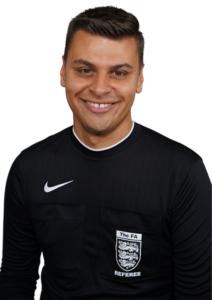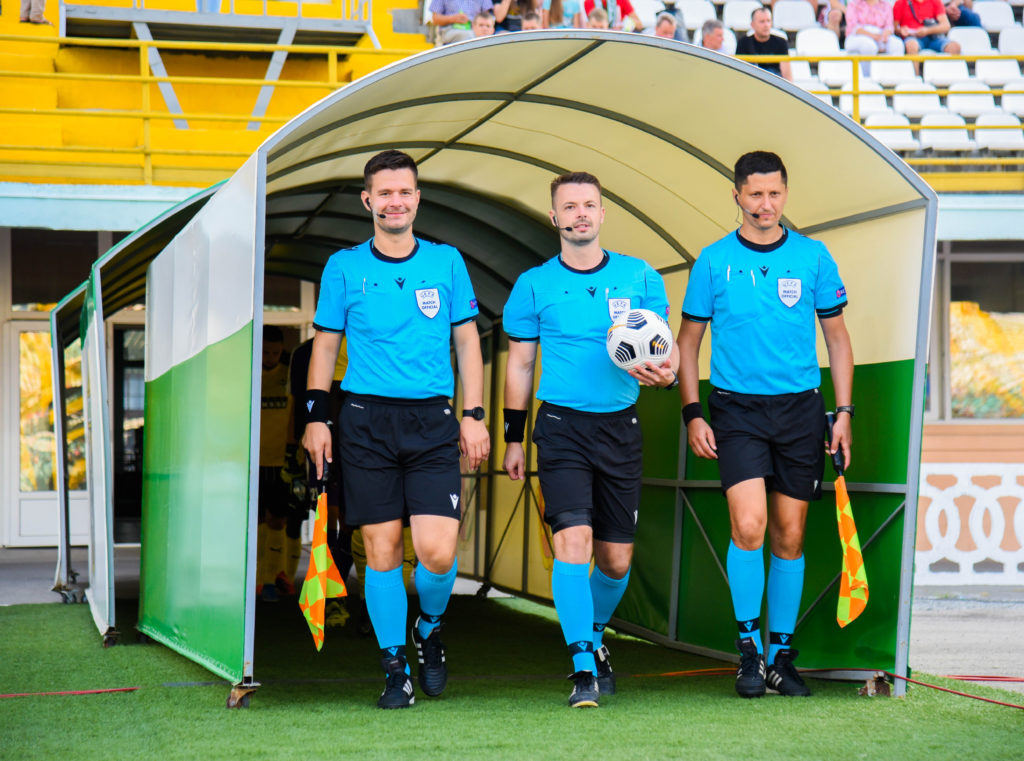The ability to make good decisions while refereeing is a crucial factor for match officials. I’m often asked about how to make better decisions, both by the referees that I work with and their coaches who help them perform at their best.
So, here’s what I recommend:
What Is Decision Making?
Although it may sound simple, there is a lot more to decision making than meets the eye. It’s a cognitive process that involves choosing the most optimal action from the available resources. To do this, officials need to think about the game situation and their own personal goals to help them make good decisions.
While we all make decisions every day, it doesn’t mean they’re always good. A skilled decision maker in refereeing has certain qualities, such as:
Recognising and identifying patterns of play
Having a good understanding of the game
Perceiving future phases of the game
Selecting and using the most helpful information
What Impacts Decision Making?
When it comes to decision making, several factors can hinder an official’s performance. However, studies have unearthed one significant factor, mental pressure. This refers to psychological strain or stress that referees often experience, particularly in matchday situations. Common examples of mental pressure include:
Psychological impact errors
Negative feedback
Sustaining attention in a dynamic environment
Mental pressures can be detrimental to decision making, as they increase the cognitive demands on the official. A referee’s brain sees mental pressures as extrinsic load, which can overload their working memory, which results in cognitive overload.
Because of the decrease in resources available to help the official make accurate decisions, their speed and accuracy in decision making suffers. Let’s delve into what the research has to say.
The Research Behind Decision Making
In this interesting study, researchers assessed young officials in conditions of high and low mental pressure. They induced mental pressure with a verbal dual task, where referees were required to remember a list of words whilst performing decision-making tasks.
Results showed a clear connection between mental pressure and decision-making performance. Officials in the high mental pressure group displayed slower responses and reaction times in comparison to those in the low mental pressure group. This is because the verbal dual task increased the amount of mental pressure experienced by the referees, overwhelming their working memory with anxiety and negative thoughts, which rendered the resources required to make accurate decisions unavailable.
Notably, this study shed a light on the influence of feedback as well. Findings revealed that negative feedback from referee coaches intensified anxiety-related thoughts, placing further strain on officials’ working memory.
How To Improve Decision Making
Making better decisions is a skill that can be developed with the right strategies. Here are four effective techniques to enhance your decision making:
Reduce mental pressure
As we know, mental pressure is an enemy of good decision making. So, it’s important to find ways to lower it. You can do this through the type of feedback you give.
Negative feedback can increase something called rumination, which is when a referee repetitively dwells on negative thoughts and feelings. However, if you make your feedback more constructive rather than negative, you can both can reduce rumination and increase motivation, which allows for better decision making.
Limit pre-match distractions
Distractions can increase the amount of extrinsic load an official is exposed to before a match. This can increase the likelihood of experiencing cognitive overload and therefore a reduction in decision-making performance.
To stop this, referees should try to limit the distractions they are exposed to before matchday, such as their phone. Establishing a pre-match routine can also help officials with this and improve decision-making performance.
Look for patterns
Elite referees excel in decision making because they can identify patterns in the game. Recognising meaningful cues allows them to anticipate and respond effectively. For example, tennis player, André Agassi noticed his rival Boris Becker would stick his tongue out to the side he was going to serve. This allowed Agassi to anticipate his actions and make the correct decision on how to respond. This highlights the importance of pattern recognition.
Allocate your attention the right places
The best decision makers gather relevant information to enhance their performance. This broader perspective helps in making accurate decisions.
Closing Reflections
Mastering decision making as a referee requires practice. By applying these strategies, officials can develop their decision-making skills, helping them to perform better under pressure and elevate their officiating level to new heights. Your ability to make the right decisions at the right time can sharpen your mental game which can be the key to achieving greatness as a referee.
At The Third Team I work individually and in collaboration with different professionals where I have developed workshops and 1-2-1 sessions associated with Resilience and Mental Toughness Development to help referees. The workshops and 1-2-1 sessions are interactive, where referees are encouraged to open up and share their experiences to help themselves and each other.
Feel free to contact me if you’d like to know more about my workshops or 1-2-1 sessions and how I could help you or your officials.
Best Wishes,

Nathan Sherratt
Referee Educator & Managing Director of The Third Team

Nathan Sherratt
Nathan Sherratt, Referee Educator, Resilience Trainer and Managing Director of The Third Team. A Mental Toughness Practitioner based in County Durham, North East England.

